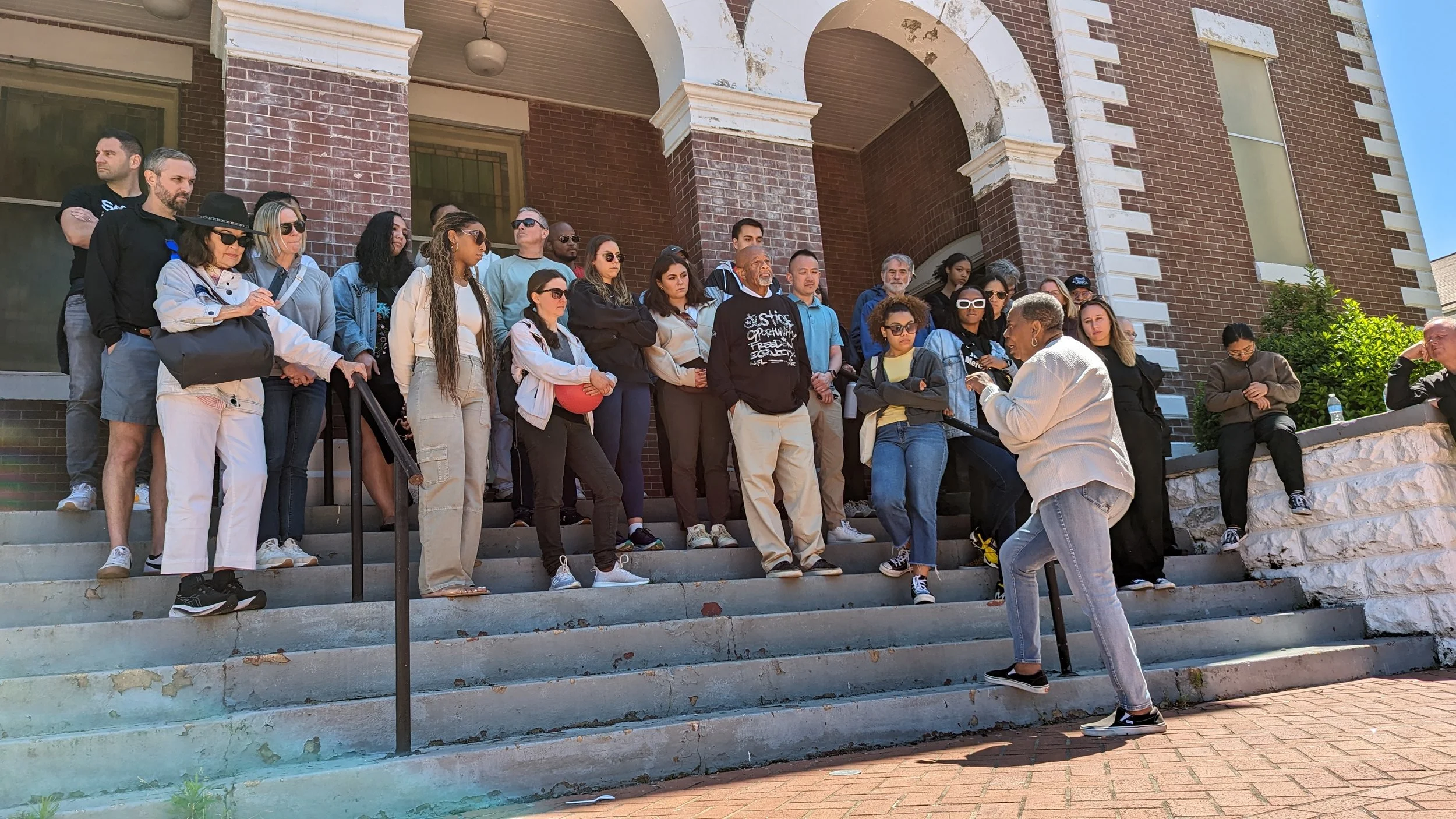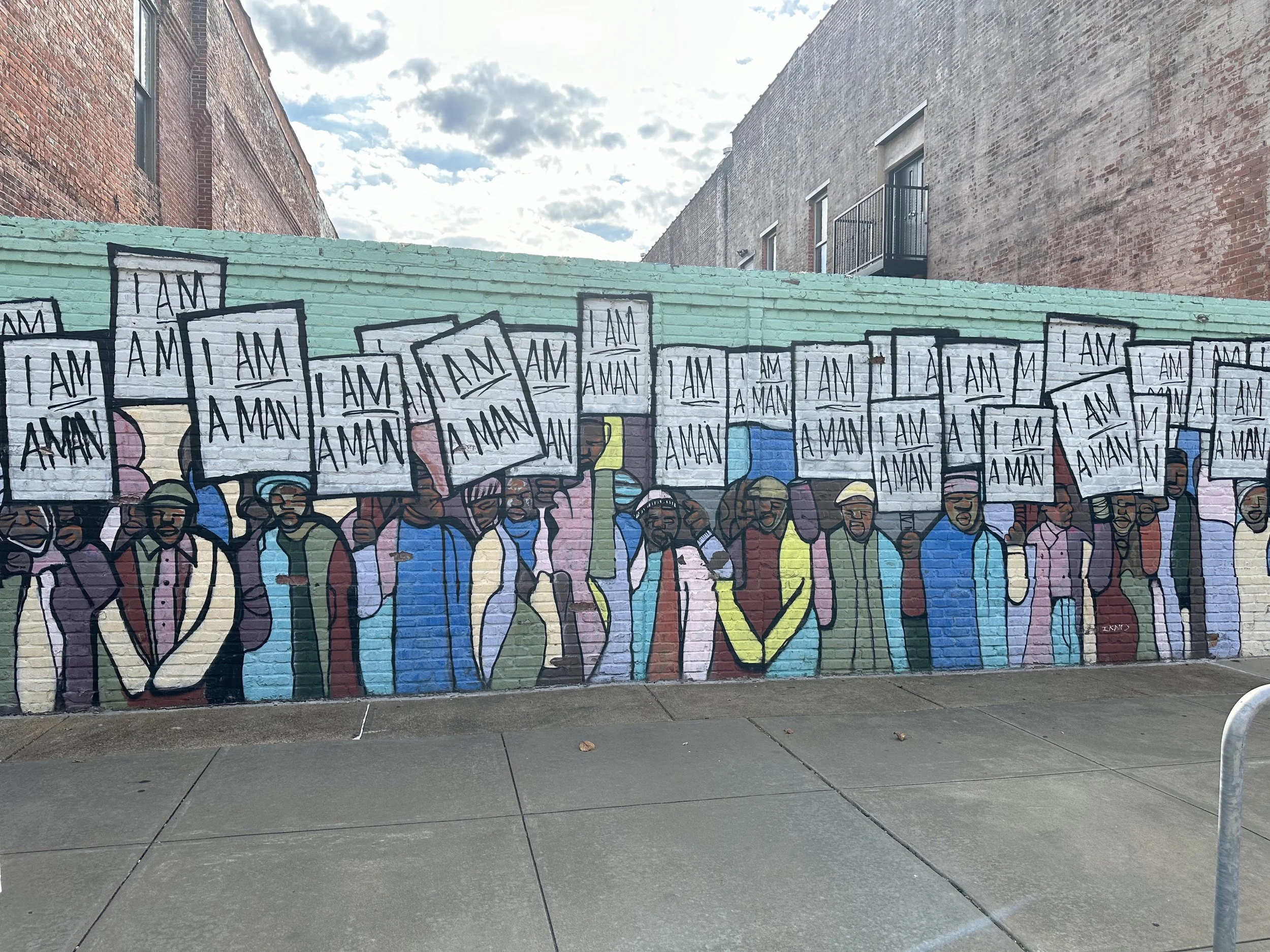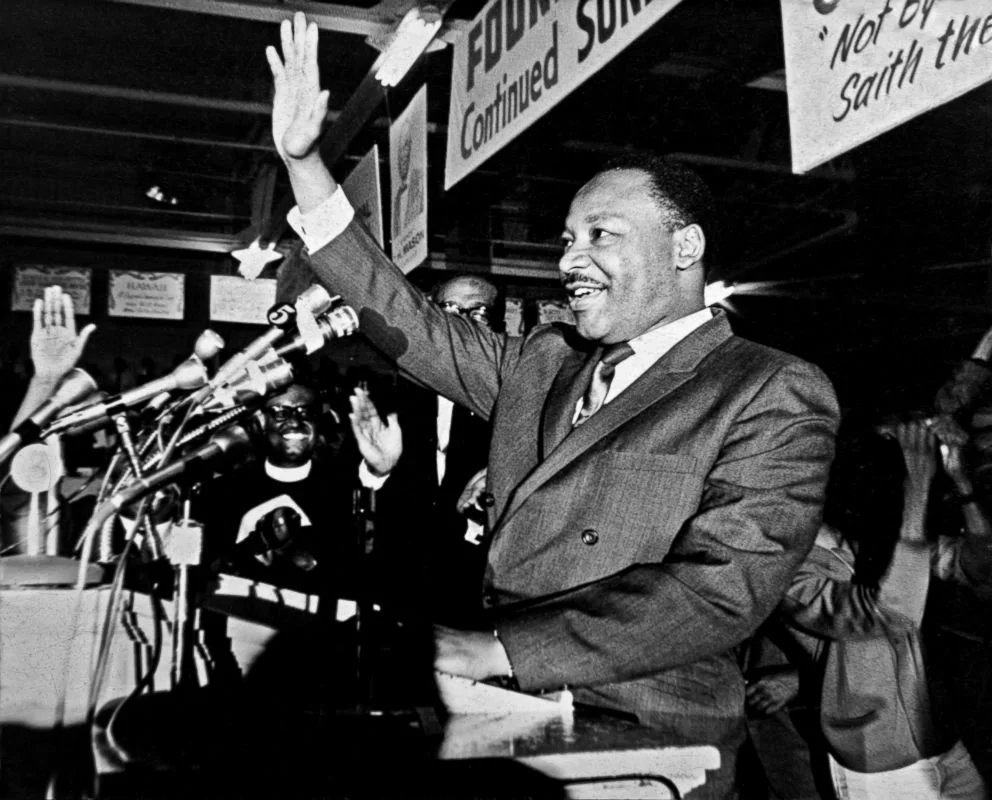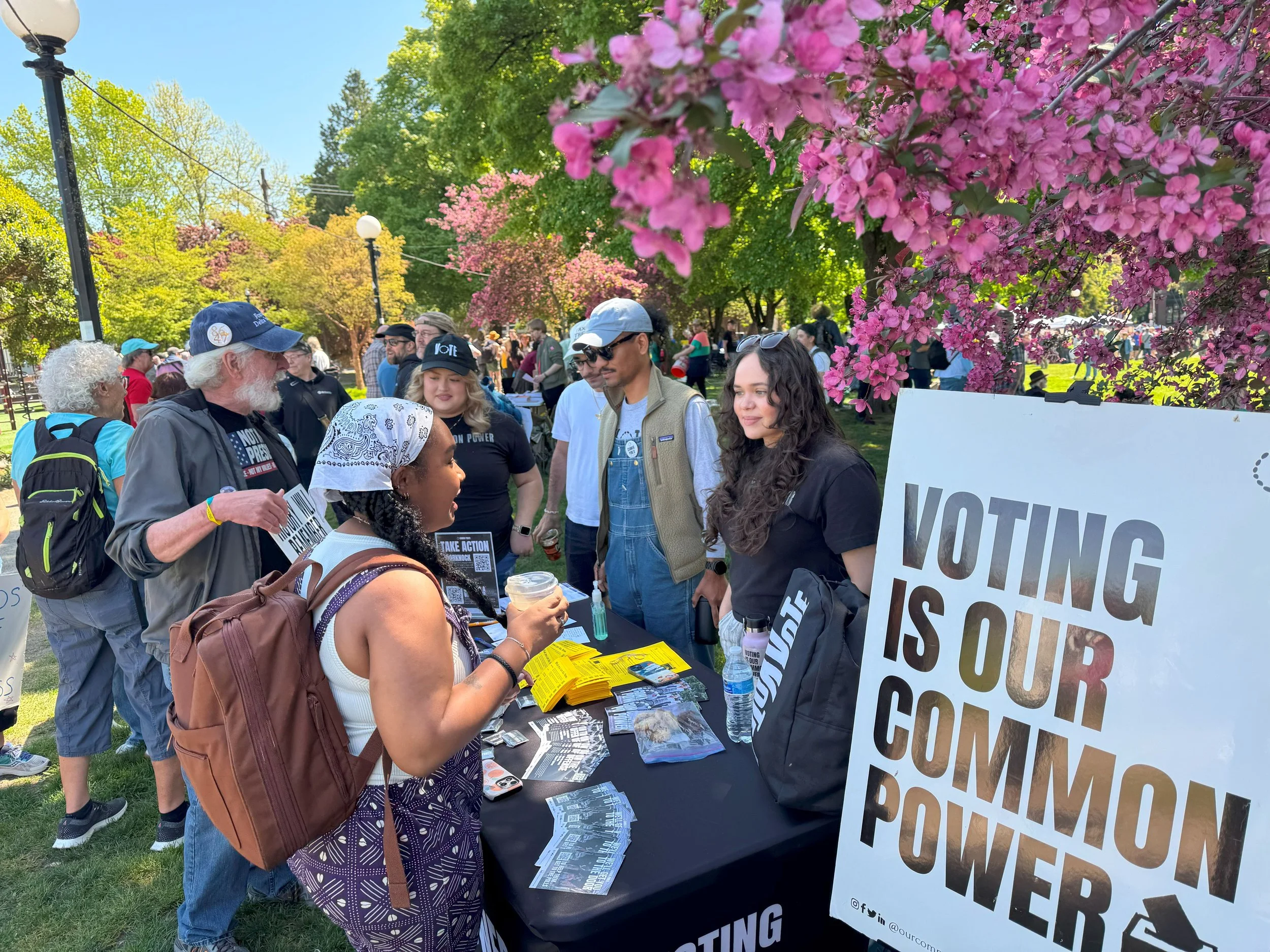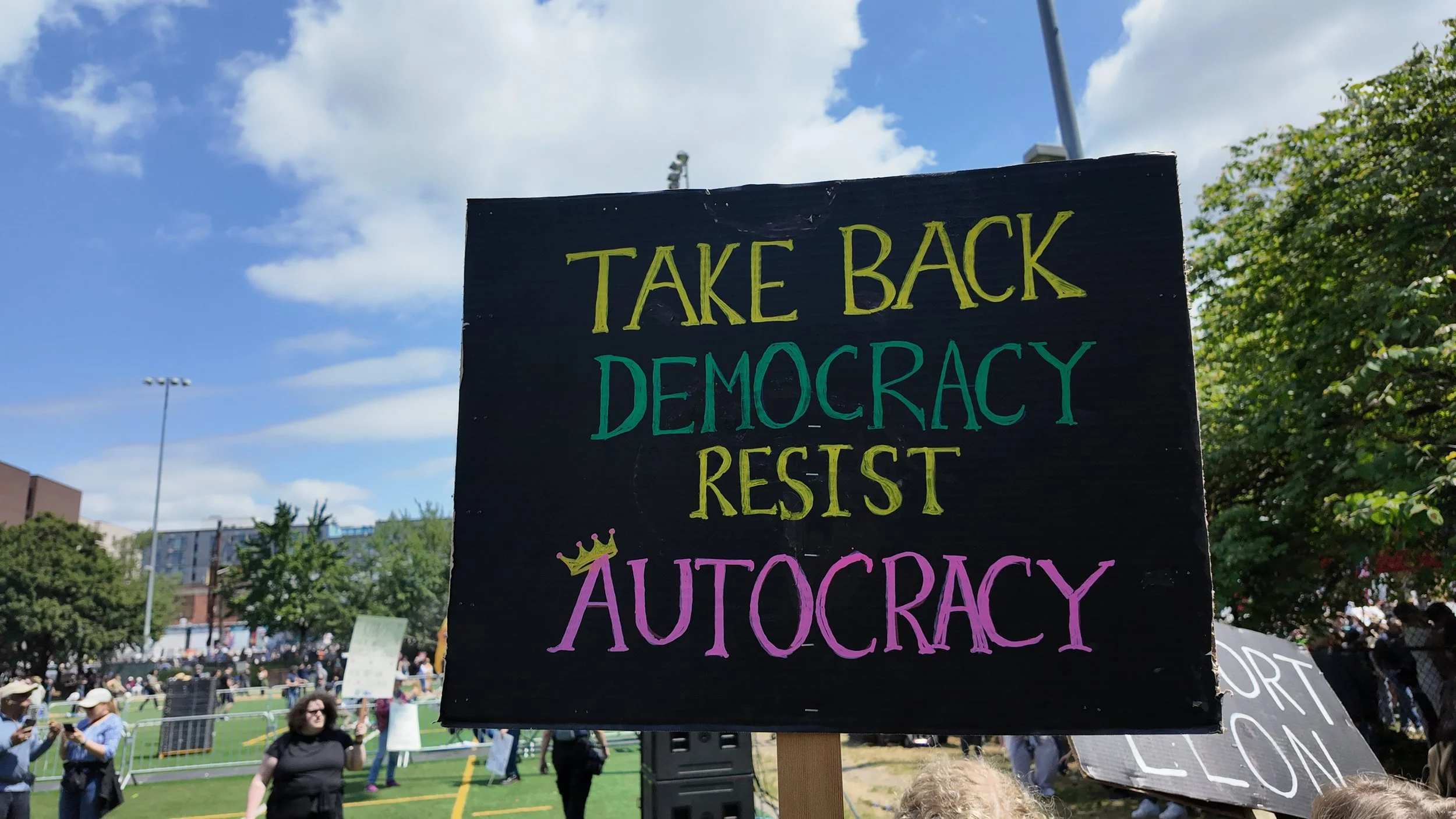A Message of Hope & Perseverance for These Troubling Times: History Shows Us the Way
Written by the Director of The Institute For Common Power, Dr. Terry Anne Scott
In the midst of the turmoil and uprisings that had gripped much of the nation in 1967, when people were rebelling against systemic racism, xenophobia, police brutality, and the absence of human rights, Dr. Martin Luther King, Jr. penned his final book, Where Do We Go from Here: Chaos or Community? Imploring people to understand the frustrations of those situated in the geographically and economically restrictive boundaries of inequity, he called for change, for perseverance, for courage to dismantle an unjust system. The passage of the 1964 Civil Rights Act and 1965 Voting Rights Act marked seemingly inconceivable and unattainable change, but there was still work to be done (just as there is today). Dr. King, always one to stride confidently and audaciously into the path of change, would lead by example in answering the question posed in his final monograph.
The Institute Learning Tour, Memphis, Tennessee ‘24
On April 3, 1968, Dr. King arrived in Memphis, Tennessee. He was there to come to the aid of striking, Black sanitation workers, people considered by too many to be the least among us. They were the downtrodden. Just weeks before Dr. King’s arrival, two Black men, Echol Cole and Robert Walker, were fatally crushed by a faulty garbage truck and the city failed to act. Their deaths revealed long-standing abuse and dismissiveness of Black sanitation workers in Memphis and existed as the spark that ignited an organized effort to exact change. Dr. King arrived that Wednesday as 1,300 sanitation workers were on strike. He came to aid in their fight.
That evening, the evening before his assassination on April 4, 1968, one of the most visible leaders in the world delivered an unbelievably powerful and emotional speech to a crowd gathered at Bishop Charles Mason Temple. There stood Dr. King, clenching the edges of the lectern—sick from what appeared to be influenza—understanding and living one of the guiding tenets of his faith, his identity: what is done to the least of us is done to all of us. While discussing the plight of the local sanitation workers, he posed the following to highlight and herald the importance of self-sacrifice:
"The question before you tonight,” he implored, is not, “’If I stop to help the sanitation workers, what will happen to all of the hours that I usually spend in my office every day and every week...?'
Sanitation workers strike - Memphis, Tenn., March 18, ‘68
The question is not, 'If I stop to help this man in need, what will happen to me?'”
The question, Dr. King insisted, is “If I do not stop to help the sanitation workers, what will happen to them?' That's the question." What will happen to them?
The question before us in this historical moment, this day and each day, is what will happen if we do nothing, if we don’t do enough. We are the ones we have been waiting for. We can create change. Common Power and the Institute for Common Power are here to help you recommit to your purpose, perhaps discover a new purpose and learn how to use your platform, your voice. Join us in this fight! We are made for this moment!
We must, today and each day, witness and recognize the change that has been made because of people like Dr. King and others. Their successes serve as primers for what can be done to change our democracy and make it one that treats the “least” among us the same as it treats the ones who have power.
May Day March Seattle 2025
May Day March Seattle 2025
There will still be those who fervently attempt to make chaos the order of the day by promoting divisiveness, by dismissing the concerns of others, by denying the existence of systemic racism, by brutalizing others. But we must unite against them. We can change people’s hearts and minds. If we can’t change the hearts and minds of some people, we can legislate their inability to harm anyone. Please join us in our work to include everyone in the folds of democracy; to create a world of possibility for all; to make this a democracy that is just and inclusive, a democracy that stops to help the least among us.

